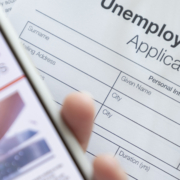Don’t get spooked by phantom debt collectors – Fraud.org
The phone rings and a scary voice on the other end tells you that you owe them money and need to pay up … or else. The caller leads you to believe that a recent loan you took out has come due and that its time to pay or face legal action. Frightening, right?
This terrifying scenario has been experienced by thousands of consumers in recent years due to con artists running the “phantom debt collector” scam. In recent weeks, consumers have contacted Fraud.org in increasing numbers, suggesting the scam is once again on the rise.
The phantom debt collection scam comes in a number of variations, but the common element in almost all of them is a claim that a consumer owes money on a debt and needs to pay or else face serious consequences. Often, the scam begins when a consumer inquires about a payday loan or other short-term credit online or over the phone. The Web site or phone number that the consumer contacts may or may not be associated with a legitimate lender. Regardless of whether the consumer actually takes out a loan, he or she may receive a call later demanding money be paid. Since consumers interested in payday loans are often financially strapped, they may be susceptible to such demands whether or not they actually took out a loan.
Even for consumers who do not have outstanding debts, the con artists are threatening and convincing and have led some consumers to wonder whether someone has taken out loans in their name. In cases where a consumer actually does have outstanding loans, the scam artist may claim that the victim owes far more in fees and interest than he or she actually does. In other cases, the victim of the scam may be behind on a loan, but the caller has no authority to actually collect on the debt. No matter the consumer’s actual situation, skilled con artists are convincing them to hand over precious cash to settle the “debt.” Scammers often demand payment on these phantom debts via wire transfer, credit or debit card.
In a major enforcement action brought by the Federal Trade Commission in 2012, scammers working out of call centers in India claimed to be law enforcement officers who threatened to arrest victims if money was not paid. One outfit alone made at least 2.5 million calls, collecting more than $5 million before it was shut down. In other recent cases, the scam artists, again apparently working out of India, have threatened a negative credit report if payment is not made.
Consumers should be on the lookout for these scams. Here are some tips for spotting and avoiding being a victim:
- If you receive a call from someone claiming to be a debt collector, ask for the person’s name and address, the company they represent and the original creditor (if indeed you have an outstanding loan). If they can’t provide this information, hang up;
- If you’re concerned about the status of an unpaid debt, hang up and call the creditor back yourself at the phone number provided on your loan paperwork;
- If the amount demanded is significantly more than the debt you owe, it’s probably a scam;
- Check your credit report. If the debt the caller claims you owe is not listed on there, it’s probably a scam;
- Don’t be intimidated if the debt collector is abusive or threatens legal action or arrest. Request that written notice of the debt be mailed to you and tell them that you do not wish to be contacted again about the debt. Under the Fair Debt Collection Practices Act, a debt collector must respect this request.
- If you suspect that the caller is a phantom debt collector, hang up and report the scam to Fraud.org.














